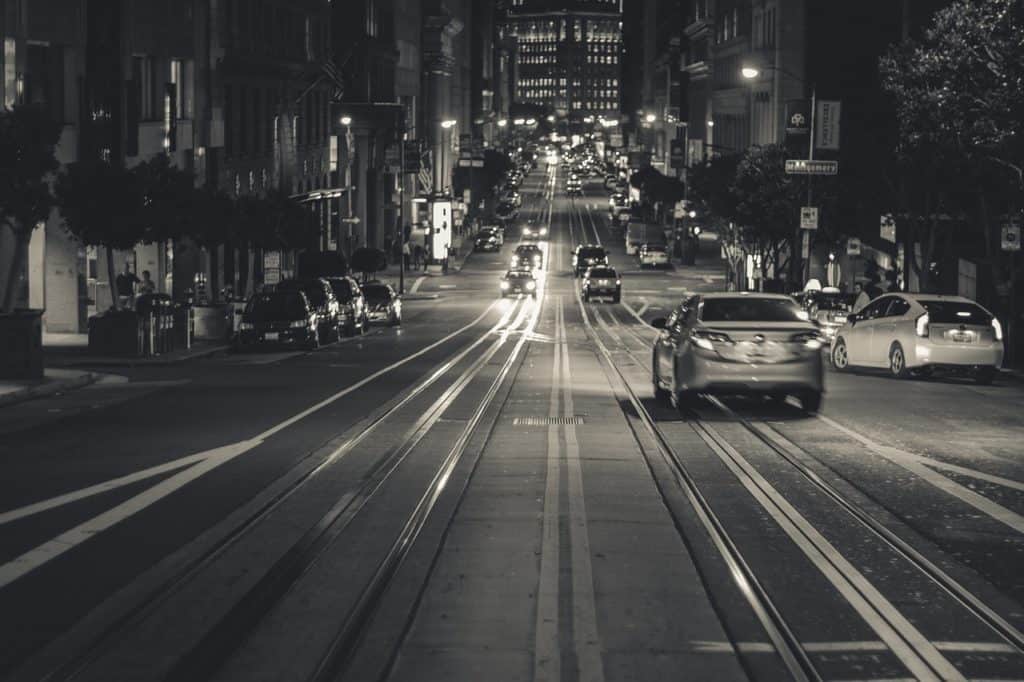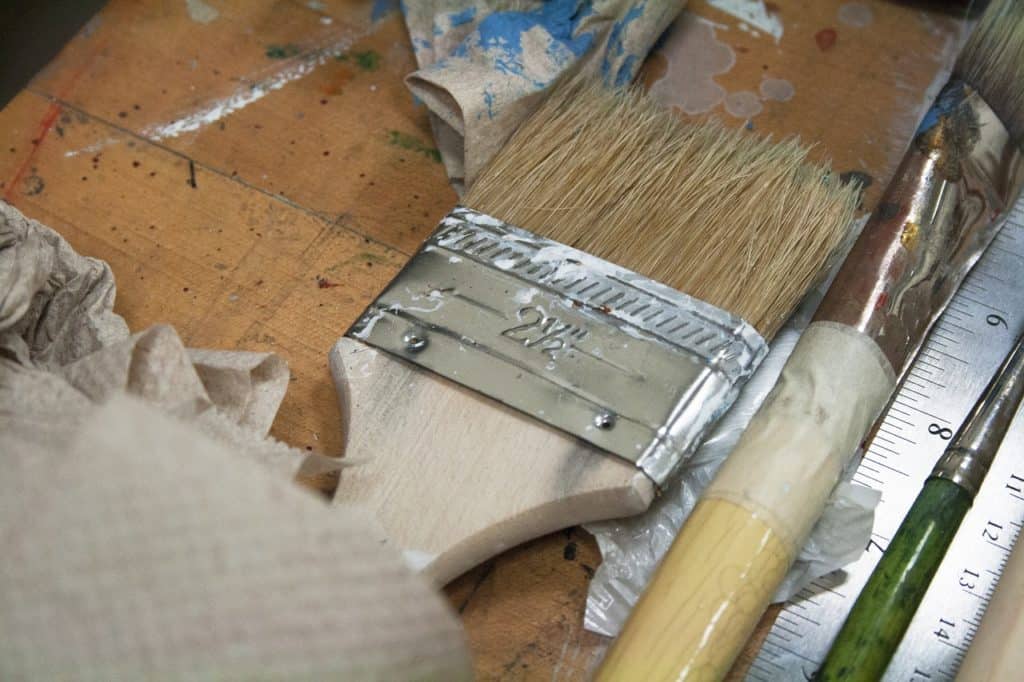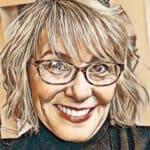The Years
-Non-fiction by Julia Anne Miller – December 14, 2018

May 2015
I am sitting on an exercise bike, slowly moving my feet, circling, circling, pushing just enough to barely move the pedals. It is exhausting. It is not a good day. When I walked into the physical therapy room, I moved slowly, calculating each step, careful to hold my spine straight, my back still. An intense, yet dull ache descends from my sacral region into my hips, a steady pressure like back labor. My left shoulder blade repeatedly slips out of alignment and the sharp pain holds my upper body still, prevents movement of my neck.
I slowly shift sideways off the bike seat, trying to balance my weight, then move cautiously to the next exercise station. Carefully, carefully, I lower myself into a sitting position on the elevated mat. Krista, I think, or Kara (Carol?)—I can never remember her name—appears in front of me, relaxed and steady. She has me place my hands on my thighs and slowly turn my head forty-five degrees and hold for sixty seconds, then the next side, then repeat. After that, the same movement, but slightly tipping my chin down after the turn, holding for sixty seconds, next side, repeat. I’m tired and want it to be over, but know we’ve just started.
I push to my feet again, and Kara leads me to a standard size door frame without a door. She places one of my hands on each side, shoulder height, elbows down. I lean forward, an inch, two inches. My left shoulder screams and I stop. It is not a good day.
Carol takes me to a treatment room, helps me onto the doctor’s office bed, places sticky pads for neuromuscular electrical stimulation on my lower spine, then supports me as I lower myself onto my back. Arms down at my sides, legs straight in front of me, pillows supporting my knees, sides, and the crook of my neck, ahhh, relief. There is pain, but less than when I am moving.
Electricity begins to tickle and buzz through my muscles, making them contract, then relax, contract, then relax, as if I am exercising. Krista places heavy blankets over me and I feel safe, warm. There is no need to move. She leaves the room, turning off the light and closing the door as she goes. I sleep.
***
What ultimately brought me to where I am today, telling a story I would never have expected to tell, was a red Ford Ranger. Ford describes the Ranger as a midsize pickup standing 66-67 inches tall. Absent of occupants and cargo, it weighs about 3000-3600 pounds, depending upon whether it has a regular cab or super cab. I don’t know the sort of cab the red Ford Ranger in this story had because I didn’t see it.
I remember the moment of impact, the weight and sound of the Ford Ranger, a full ten inches taller than my Corolla, hitting the driver’s side door. For weeks, I heard the sound, felt the sudden flash of confusion, just as I was falling asleep. I would jerk awake, then stare up into the darkness, lying perfectly still to avoid a spike in pain. I thought about it then, and think about it now, with a surreal sense of wonder, like trying to identify the source of a déjà vu. Is it real? Is that how it happened? I know it is in a detached, factual sort of way. But it was so unexpected. It wasn’t in my plans.
May 2016
 I flip through the photos taken this time last year, then continue flipping through photos from the years before with a strange sense of voyeurism. I remember how it felt to be a child, a teenager, a young adult. I remember how I felt in my thirties and into my forties, but then my memory stops. The last few years are erased, a blank screen. It’s as if I am not in the pictures. Instead, there’s an absent quality, like I’m looking at someone else’s family photos or searching for items that are out-of-place in a “What’s wrong with this picture?” puzzle. I feel skeletal, like a wire armature waiting to be filled out by clay, then cast. But I can’t sense a sculptor standing back, looking, considering how the clay will become a figure, contemplating what needs to be said through the work of her hands. The wind could blow straight through me.
I flip through the photos taken this time last year, then continue flipping through photos from the years before with a strange sense of voyeurism. I remember how it felt to be a child, a teenager, a young adult. I remember how I felt in my thirties and into my forties, but then my memory stops. The last few years are erased, a blank screen. It’s as if I am not in the pictures. Instead, there’s an absent quality, like I’m looking at someone else’s family photos or searching for items that are out-of-place in a “What’s wrong with this picture?” puzzle. I feel skeletal, like a wire armature waiting to be filled out by clay, then cast. But I can’t sense a sculptor standing back, looking, considering how the clay will become a figure, contemplating what needs to be said through the work of her hands. The wind could blow straight through me.
The pictures show a baker and entertainer, a mother and grandmother, a whirl of activity and energy. I loved life, I think. My eyes always seemed to be laughing.
May 2017
For the past month, I have anticipated the second anniversary of the accident with a sense of gratitude and hope. It could have been so much worse. I lost parts of myself that day, but I got to keep much more—I am alive, and though altered, I have conscious awareness, language, and physical mobility. I am healing, and I am grateful.
And now Facebook sneaks in, churning out memory after memory with “two years ago today” posts. I was so busy that May. I made my last two elaborate cakes—one a light blue three-tier Frozen cake, with sparkling snow drifts and Elsa on top commanding her powers. It was my granddaughter’s fifth birthday. Less than a month later, I couldn’t remember how old she was, could not remember being in the delivery room when she was born.
My son’s junior prom was four days before the accident. I gathered with other parents on the lawn of a lovely home, took picture after picture. My son’s date was a female friend who had no one to go with. His girlfriend brought a male friend who was also dateless. They hammed it up for the camera, switching up combinations of each boy with each girl, then two boys, then two girls. Every photo looked like the perfect couple. I took a picture the next morning of the scene when I walked into my living room: two pairs of shiny, black shoes, a bowtie here, a belt or wallet there, white shirts and tuxedo jackets scattered around the room. Did they sleep in their pants?
I hosted my last large family gathering three days before the accident. The photos show a celebration of mothers—my mom, sister, daughter, me. It was a full house, and I laughed a lot. I can remember that for years I had kept a detailed planning notebook, deciding on recipes and décor, noting ideas for special gifts for guests. Everything was always beautiful and went nearly exactly as planned—any hiccups were easily addressed because everything else was in order. I search and search but can’t remember how it felt to think that way.
There are no photos from this time last year. I was still struggling to regain my balance, figuratively and literally. Most memories of the first eighteen months float untethered by time—I don’t know exactly when events happened. This year will be documented. I am marking it with a party.
Two years ago, at this very hour, I was unable to stand alone. I used a potty chair next to my hospital bed, assisted by a nurse. Patterns of white covered my visual field like a screen. I did not know that I was unable to remember the year or my birthday. I smile, knowing now that I made myself several years younger. I am told I kept saying, My daughter is in develop. My daughter is in develop. She was in labor just two floors up and I was supposed to be in the delivery room, supporting her through childbirth for a third time. She waddled downstairs to visit and calm me, alarming the nurses.
 Again, I smile, remembering that I’d spent the five weeks prior to the accident cleaning, stripping, repairing, and painting my marital home. My ex-husband had nearly destroyed it in the nineteen months since I had left, all surfaces steeped in alcohol, smelling like rotted fruit. Garbage was left on the floors, the smell of the bathrooms all too evident when the front door was opened. Cleaning up the house had been cleansing for me as well. I removed him from my skin, from my clothing, from my being. I stripped our walls clean, painting every single room and the ceilings bright white, each coat of paint its own catharsis. I had just gotten the house on the market the day before the world shifted. In the ambulance, I announced that I had finally gotten my husband listed. Okay, I admit I don’t really smile thinking about that. I laugh out loud.
Again, I smile, remembering that I’d spent the five weeks prior to the accident cleaning, stripping, repairing, and painting my marital home. My ex-husband had nearly destroyed it in the nineteen months since I had left, all surfaces steeped in alcohol, smelling like rotted fruit. Garbage was left on the floors, the smell of the bathrooms all too evident when the front door was opened. Cleaning up the house had been cleansing for me as well. I removed him from my skin, from my clothing, from my being. I stripped our walls clean, painting every single room and the ceilings bright white, each coat of paint its own catharsis. I had just gotten the house on the market the day before the world shifted. In the ambulance, I announced that I had finally gotten my husband listed. Okay, I admit I don’t really smile thinking about that. I laugh out loud.
May 2018
It has become a tradition, albeit a very private one. On anniversary day, I flip through the photos of the years immediately before the accident, searching for a clue, a memory trigger, but all I see is the person who looks quite like me but is not me. She has a short, dark pixie cut. I would remember that without the photos because I had that hairstyle for many years. When I finally began to emerge into who I am now, I became a blonde and let my hair grow longer. Since I had never found blondes attractive before, this caused my friends and family to worry. Along with me, they believe I have a lifetime of memories locked up, waiting for the right neural pathways to set them loose. I picture little waving arms reaching like climbing vines, ready to grab on at any second. But these connections don’t return me to who I was before. She is gone, regardless of how much I remember. Who isn’t changed by a life altering illness, injury, or other loss? No one emerges the same.
I pick up a mirror and look, really look, at my reflection. My face has changed this year. Until last year, the right side was animated, the left somewhat frozen. Now, the left is more relaxed than the right, but both sides crinkle when I smile—not as balanced as before the accident, but so what? They crinkle.
I flip back to the photos from 2016. My eyes look like they want to say something, but my face won’t let them. I look back into the mirror and crunch up my face, squeezing my brows together, pursing my lips as hard as I can. I let my face relax and examine the lines on my forehead, between my brows, across the bridge of my nose. I could live without the generic forehead lines, but the rest are clearly about me, carrying stories of how I have expressed myself since the day I was born.
Turning back to the pictures, I scan for closeups of my “before face.” And there it is, a memory vine taking hold. In the photo, I am standing in the doorway of what I remember is an urban mission that serves women and children aged five and under. Most of the women are very young, girls really. I remember that I volunteer as an intake counselor and that the director’s name is Doris. She speaks Spanish. It’s a Catholic mission called Golden something and is part of the church where I attend mass. I can smell the incense that has become a part of the sanctuary walls over the last 160 years, can feel the ker-thunk of hooking the underside of the kneeler with my foot and lowering it to the floor. I can feel myself slide from the wooden pew into a kneeling position. I put my elbows on the back of the pew in front of me, place my face in my hands, and breathe. The memory is from 2013.
 About the Author – Julia Anne Miller
About the Author – Julia Anne Miller
Julia Anne Miller is a doctoral student of Humanities at Union Institute & University. She has taught undergraduate philosophy at the University of Cincinnati and Stony Brook University and lectured at Northern Kentucky University and the University of Kentucky. She has published poetry and creative nonfiction in a variety of literary journals as well as the 2018 anthology Corners: Voices on Change. Most recently, her writing has focused on recovering from a traumatic brain injury.
Did you like this non-fiction story by Julia Anne Miller? Then you might also like:
The Red Jeep
No Pain, No Gain
Gelato and Frost
Recipe for Saying Goodbye